Gardener Berrylands: A Comprehensive Guide
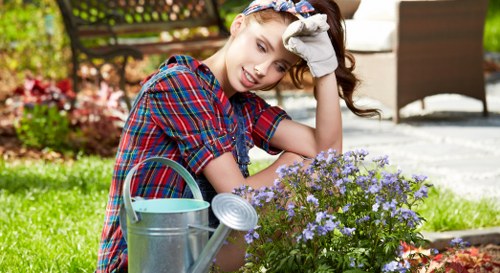
Introduction to Gardener Berrylands
Welcome to Gardener Berrylands, your go-to destination for all things gardening in the Berrylands area. Whether you're a seasoned gardener or just starting out, this guide will provide you with valuable insights, tips, and resources to help your garden thrive.
Berrylands is renowned for its lush landscapes and vibrant community. The region's favorable climate and fertile soil make it an ideal place for cultivating a wide variety of plants, from colorful flowers to robust vegetables.
In this article, we'll explore the best practices for gardening in Berrylands, highlight some of the area's unique features, and connect you with local resources to support your green thumb journey.
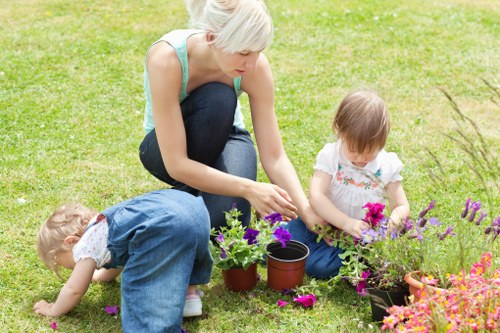
Understanding the Climate of Berrylands
Weather Patterns
Berrylands enjoys a temperate climate, characterized by mild winters and warm summers. This makes it possible to grow a diverse range of plants throughout the year. Understanding the local weather patterns is crucial for planning your gardening activities and selecting the right plants for each season.
The region receives ample rainfall, which supports healthy plant growth. However, it's important to implement proper drainage and irrigation systems to manage excess water and prevent root diseases.
Spring in Berrylands is marked by blooming flowers and increasing temperatures, signaling the perfect time to plant new seeds. Summer brings longer days and abundant sunlight, ideal for harvesting and maintaining your garden.
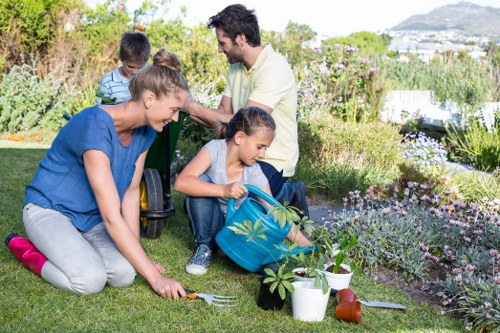
Soil Composition and Preparation
Types of Soil in Berrylands
The soil in Berrylands is predominantly loamy, offering a balanced mix of sand, silt, and clay. This type of soil provides excellent drainage while retaining enough moisture to nourish plants. Additionally, the rich organic matter in Berrylands soil enhances its fertility, reducing the need for excessive fertilizers.
Before planting, it's essential to test your soil's pH levels. Most plants thrive in slightly acidic to neutral soil (pH 6.0-7.0). If your soil is too acidic or alkaline, you can amend it using lime or sulfur to create a more favorable environment for your plants.
Incorporating compost or well-rotted manure into the soil can significantly improve its structure and nutrient content. This organic matter promotes healthy root development and enhances the soil's ability to retain moisture.
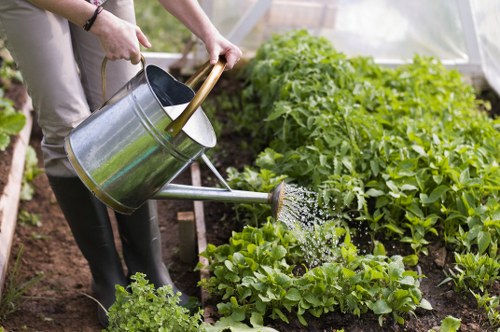
Choosing the Right Plants for Berrylands
Flowers
Berrylands' climate is perfect for a wide variety of flowering plants. Some popular choices include roses, tulips, and daisies. These flowers not only add beauty to your garden but also attract pollinators like bees and butterflies, which are vital for a healthy ecosystem.
Perennials such as lavender and peonies are excellent options for long-lasting blooms. They require minimal maintenance once established, allowing you to enjoy their vibrant colors year after year.
Vegetables
For those interested in growing their own vegetables, Berrylands offers an excellent environment for cultivating crops like tomatoes, cucumbers, and lettuce. These vegetables thrive in the region's sunny conditions and well-drained soil.
Implementing crop rotation and companion planting can help maximize your garden's productivity and reduce the risk of pests and diseases.
Herbs
Herbs such as basil, thyme, and rosemary are well-suited to Berrylands' climate. These versatile plants not only enhance your culinary creations but also have medicinal properties that can benefit your overall well-being.
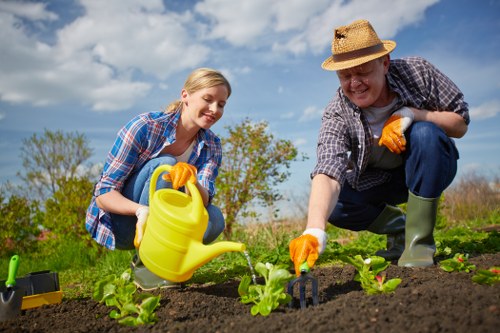
Gardening Techniques and Best Practices
Watering
Proper watering is essential for maintaining a healthy garden. In Berrylands, it's recommended to water your plants early in the morning to reduce evaporation and prevent fungal diseases. Using drip irrigation systems can help conserve water and deliver it directly to the plant roots where it's needed most.
Pruning and Maintenance
Regular pruning helps promote healthy growth and improves the appearance of your plants. Remove dead or diseased branches, and trim overgrown areas to encourage better air circulation and sunlight penetration.
Pest Control
Managing pests in your garden requires a balanced approach. Integrated pest management (IPM) strategies, such as introducing beneficial insects and using natural repellents, can keep pest populations under control without harming the environment.
- Introduce ladybugs to combat aphids.
- Use neem oil as a natural insecticide.
- Plant marigolds to deter nematodes.
Local Resources for Gardeners in Berrylands
Nurseries and Garden Centers
Berrylands boasts several reputable nurseries and garden centers that offer a wide selection of plants, tools, and gardening supplies. Visiting these local businesses supports the community and provides access to expert advice tailored to the area's specific gardening conditions.
Gardening Clubs and Workshops
Joining a local gardening club can connect you with fellow enthusiasts who share your passion. These clubs often host workshops, plant swaps, and community garden projects, providing opportunities to learn and collaborate.
Online Communities and Forums
Numerous online platforms cater to Berrylands gardeners, offering a space to exchange tips, share experiences, and seek advice. Engaging with these communities can enhance your gardening knowledge and keep you updated on the latest trends and techniques.
Nearby Areas to Berrylands
Berrylands is surrounded by several charming neighborhoods and communities, each offering unique features for gardeners:
- Hook: Located just northwest of Berrylands, Hook is known for its community gardens and green spaces, providing ample opportunities for local gardening enthusiasts.
- Chessington: Famous for the Chessington World of Adventures, this area also benefits from well-maintained public parks and gardens where residents can practice their gardening skills.
- Long Ditton: This picturesque village south of Berrylands offers a tranquil environment with private gardens and small-scale farming opportunities.
- Lower Green: With its close proximity to Berrylands, Lower Green features several nurseries and garden centers that cater to local gardeners.
- Surbiton: A bustling town adjacent to Berrylands, Surbiton provides access to extensive gardening resources, including botanical gardens and educational workshops.
- Hook Common: A vast open space near Hook, offering community gardening projects and recreational areas for outdoor activities.
- Southberry: Known for its fertile lands, Southberry is ideal for larger gardening projects and community farming initiatives.
- Berrylands Park: A local park that serves as a hub for gardening events and seasonal plant fairs, encouraging community participation.
- Emery Hill: A nearby neighborhood with well-established gardens and active gardening clubs supporting local horticulture.
- Claremont Mead: Offering scenic landscapes and garden trails, Claremont Mead is perfect for leisurely gardening and nature walks.
Seasonal Gardening in Berrylands
Spring
Spring is a time of renewal in Berrylands. As temperatures rise, it's the perfect season to plant new flowers, vegetables, and herbs. Start by preparing your soil and selecting plants that thrive in the cooler early temperatures.
Summer
Summer gardening focuses on maintaining your plants through the warmth. Ensure consistent watering and provide shade for sensitive plants during the hottest parts of the day.
Autumn
Autumn is ideal for harvesting your summer crops and preparing your garden for the cooler months. Planting hardy vegetables and mulching can protect your garden over the winter.
Winter
While outdoor gardening slows down in winter, it's a great time to plan for the next season. Focus on indoor gardening projects, such as growing herbs on a windowsill or setting up a greenhouse for year-round cultivation.
Sustainable Gardening Practices
Composting
Composting is an eco-friendly way to recycle kitchen scraps and garden waste into nutrient-rich soil. Setting up a compost bin in Berrylands can reduce your household waste and provide a sustainable source of fertilizer for your garden.
Rainwater Harvesting
Collecting rainwater from gutters and downspouts can help conserve water and provide a natural irrigation source for your plants. Installing rain barrels is a simple way to implement this practice in Berrylands.
Organic Gardening
Using organic methods and natural fertilizers promotes a healthy ecosystem in your garden. Avoiding synthetic chemicals helps protect beneficial insects and maintains the soil's natural balance.
Gardening Challenges in Berrylands
Pests and Diseases
Like any gardening area, Berrylands faces its share of pests and plant diseases. Common pests include aphids, slugs, and caterpillars, while diseases like powdery mildew and blight can affect your plants.
Implementing preventive measures, such as proper spacing, regular inspections, and maintaining plant health, can minimize these challenges. Using natural remedies and biological controls is also effective in managing pest populations.
Climate Variability
While Berrylands generally has a favorable climate for gardening, unexpected weather patterns like frost or heatwaves can pose challenges. Staying informed about weather forecasts and having contingency plans, such as protective coverings or shade cloths, can help mitigate these issues.
Soil Health
Maintaining healthy soil is essential for robust plant growth. Over-fertilization or neglecting soil amendments can degrade soil quality over time. Regularly testing your soil and enriching it with organic matter supports sustainable gardening practices.
Community and Events
Garden Shows and Fairs
Berrylands hosts several garden shows and fairs throughout the year, showcasing the best of local horticulture. These events are perfect for gaining inspiration, discovering new plants, and connecting with other gardening enthusiasts.
Workshops and Classes
Educational workshops and classes are available for those looking to expand their gardening knowledge. Topics range from basic gardening techniques to advanced landscaping and sustainable practices.
Community Gardens
Participating in community gardens offers a collaborative environment where gardeners can share resources, ideas, and labor. It's also a great way to foster a sense of community and contribute to local green spaces.
Seasonal Festivals
Berrylands celebrates the changing seasons with festivals that highlight seasonal plants, produce, and gardening traditions. These festivals provide opportunities for families and individuals to engage in gardening activities and enjoy the beauty of nature.
Gardening Tools and Supplies
Essential Tools
Having the right tools is crucial for efficient gardening. Some essential tools for Berrylands gardeners include:
- Hand trowel
- Pruning shears
- Garden gloves
- Watering can or hose with a spray nozzle
- Wheelbarrow or garden cart
Soil Amendments
Quality soil amendments like compost, manure, and peat moss enhance soil structure and fertility. These are readily available at local nurseries and garden centers in Berrylands.
Plant Supports
Supports such as trellises, stakes, and cages help plants grow upright and prevent damage from wind or heavy fruit. These are especially useful for climbing plants like tomatoes and cucumbers.
Mulching Materials
Mulch helps retain soil moisture, suppress weeds, and regulate soil temperature. Organic mulches like bark, straw, and wood chips are excellent choices for Berrylands gardens.
Indoor Gardening Options
Herb Gardens
Indoor herb gardens are a popular choice for Berrylands residents with limited outdoor space. Herbs like basil, mint, and parsley can thrive on a sunny windowsill, providing fresh ingredients for your kitchen.
Succulents and Cacti
Succulents and cacti are low-maintenance plants that require minimal watering, making them ideal for indoor gardening. Their unique shapes and textures add aesthetic value to any indoor space.
Hydroponics
Hydroponic systems allow you to grow plants without soil, using nutrient-rich water solutions instead. This method is efficient and can be set up indoors, providing a modern approach to gardening in Berrylands.
Vertical Gardens
Vertical gardens maximize space by growing plants upward rather than outward. This is especially beneficial for urban gardeners in Berrylands looking to create a lush green space on balconies or small patios.
Gardening for Wildlife
Attracting Pollinators
Planting flowers that attract bees, butterflies, and other pollinators is beneficial for your garden and the local ecosystem. Native plants like lavender, daisies, and sunflowers are excellent choices for attracting these helpful insects.
Bird Gardens
Creating a bird-friendly garden involves providing food, water, and shelter for various bird species. Install bird feeders, bird baths, and nesting boxes to encourage birds to visit your garden.
Habitat Preservation
Preserving natural habitats in Berrylands helps maintain biodiversity and supports wildlife. Avoid using pesticides and opt for organic gardening methods to create a safe environment for all creatures.
Water Features
Adding water features like ponds or fountains can attract amphibians and other wildlife. Ensure that water sources are clean and free from pollutants to support healthy ecosystems.
Advanced Gardening Techniques
Pruning for Shape and Health
Advanced pruning techniques involve shaping plants to enhance their structural integrity and aesthetic appeal. Proper pruning stimulates new growth and helps prevent diseases by improving air circulation.
Grafting and Propagation
Grafting involves joining two plant parts so they grow as one, allowing you to propagate new plants with desirable traits. This technique is commonly used with fruit trees and roses in Berrylands.
Soil Testing and Amendments
Regular soil testing provides detailed information about nutrient levels and pH balance. Based on the results, you can apply targeted amendments to optimize soil conditions for specific plants.
Companion Planting
Companion planting is the practice of growing complementary plants together to enhance growth, deter pests, and improve yields. Examples include planting marigolds with tomatoes to repel nematodes.
Greenhouse Gardening
Using a greenhouse extends your growing season and allows you to cultivate plants that require controlled environments. Greenhouses can protect sensitive plants from extreme weather and pests.
Conclusion
Gardener Berrylands provides a nurturing environment for both novice and experienced gardeners. With its favorable climate, rich soil, and supportive community, Berrylands is the perfect place to cultivate a thriving garden.
By understanding the local conditions, choosing the right plants, and implementing sustainable practices, you can create a beautiful and productive garden that enhances your living space and supports the local ecosystem.
Embrace the gardening opportunities in Berrylands and watch your green space flourish throughout the seasons.
Frequently Asked Questions
1. What are the best plants to grow in Berrylands?
Berrylands' climate is ideal for a variety of plants, including roses, tulips, daisies, tomatoes, cucumbers, basil, and lavender. These plants thrive in the region's temperate conditions and fertile soil.
2. How can I manage pests organically in my Berrylands garden?
Implementing integrated pest management (IPM) strategies, such as introducing beneficial insects like ladybugs, using natural repellents like neem oil, and planting pest-deterring plants like marigolds, can help manage pests organically.
3. What resources are available for gardeners in Berrylands?
Gardeners in Berrylands can access local nurseries, gardening clubs, workshops, online forums, and community gardens. These resources provide tools, plants, expert advice, and opportunities to connect with other gardening enthusiasts.
4. How do I prepare my soil for planting in Berrylands?
Start by testing your soil's pH levels and amending it if necessary. Incorporate compost or well-rotted manure to enhance soil structure and fertility. Ensuring proper drainage and adding organic matter will support healthy plant growth.
5. What are some sustainable gardening practices suitable for Berrylands?
Sustainable practices include composting kitchen and garden waste, harvesting rainwater for irrigation, practicing organic gardening to avoid synthetic chemicals, and creating habitats for local wildlife. These methods help maintain a healthy and eco-friendly garden.